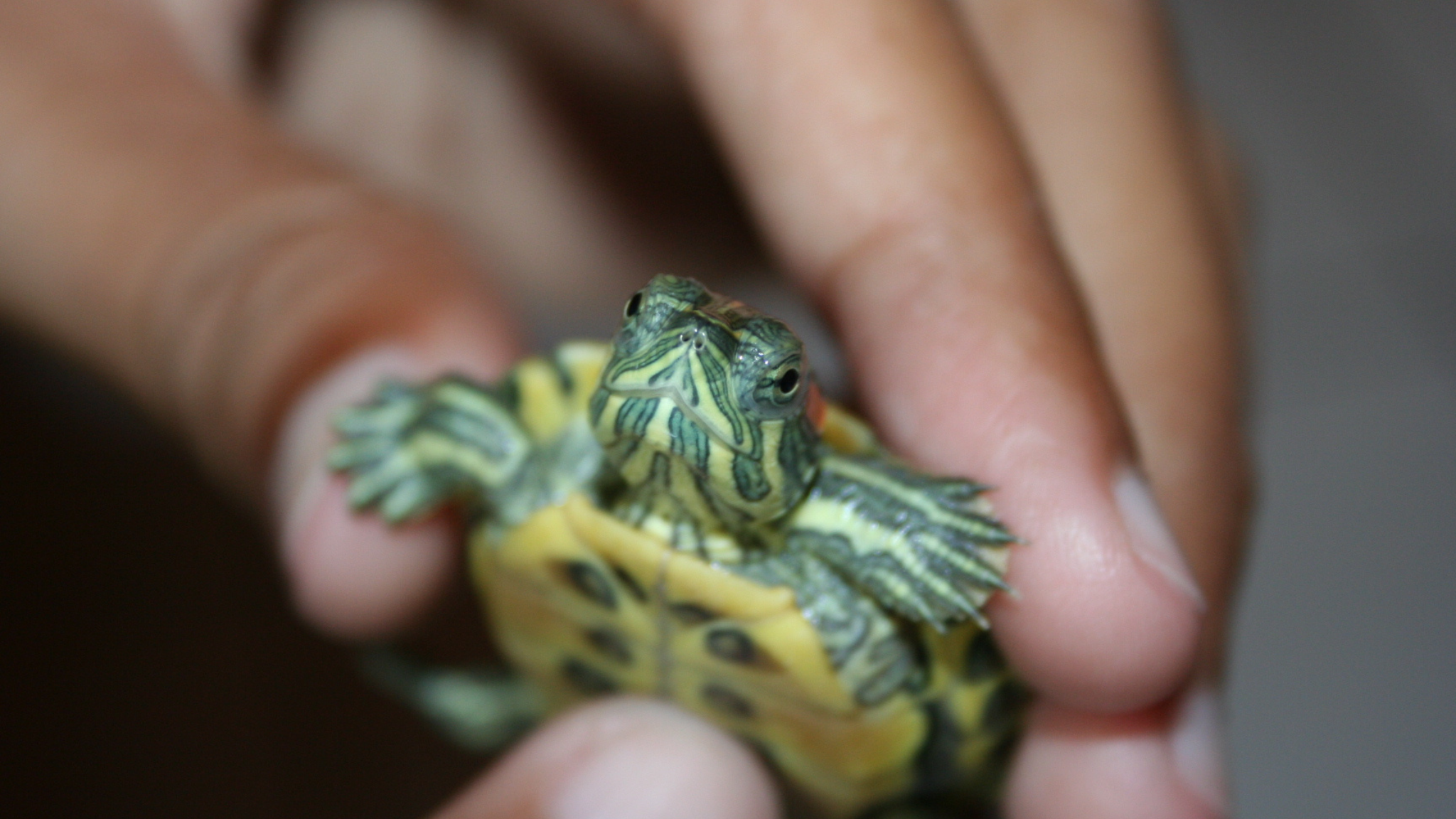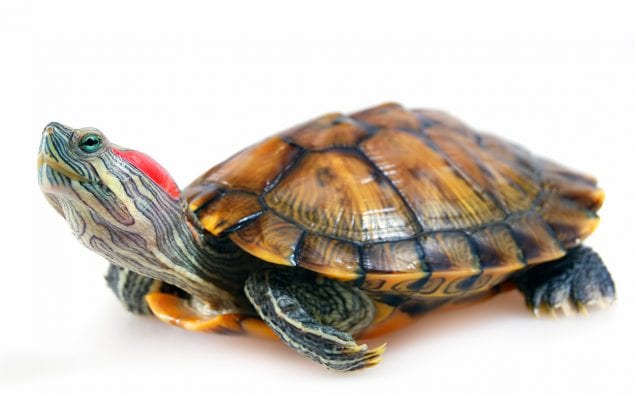Do Red Eared Slider Turtles Carry Diseases?
Are you considering getting a Red Eared Slider turtle as a pet? Before you do, it’s important to know whether these turtles can carry and transmit diseases, and what type of diseases they can carry. In this article, we’ll explore what diseases Red Eared Slider turtles can carry and how to prevent and treat them. We’ll also discuss the best ways to keep your pet healthy and safe.

Do Red Eared Slider Turtles Carry Diseases?
Red-eared sliders are among the most popular pet reptiles in the world. They are known for their bright colors and hardy nature, making them a great choice for beginner reptile keepers. But, while they may be easy to care for, there is one important question that many people have: do red-eared sliders carry diseases?
The answer is yes, red-eared sliders can carry diseases. These reptiles are susceptible to a wide range of diseases, including both bacterial and viral infections. Some of the most common diseases seen in red-eared sliders include respiratory infections, fungal infections, and shell rot.
Common Diseases in Red-Eared Sliders
Respiratory infections are the most common type of disease seen in red-eared sliders. These infections are caused by a variety of bacteria and viruses, including Mycoplasma, Chlamydia, and Herpesvirus. Symptoms of a respiratory infection include excessive mucus production, coughing, and difficulty breathing. If left untreated, a respiratory infection can be fatal.
Fungal infections are another common problem in red-eared sliders. These infections are caused by the fungus Saprolegnia, which is a type of water mold. Symptoms of a fungal infection include white patches on the skin, discoloration of the shell, and lethargy. Fungal infections are usually treated with antifungal medications.
Shell rot is a type of bacterial infection that affects the shell of the turtle. It is usually caused by poor water quality or a lack of nutrition. Symptoms of shell rot include soft or pitted areas on the shell, discoloration, and foul odors. Treatment for shell rot usually involves antibiotics and other medications.
Preventing Disease in Red-Eared Sliders
The best way to prevent disease in red-eared sliders is to provide them with a healthy environment. This includes providing them with clean water, adequate nutrition, and a proper temperature and humidity level. It is also important to regularly check your turtle for any signs of illness, such as discoloration, lethargy, or a lack of appetite.
Additionally, it is important to never handle a turtle that appears ill or has any open wounds. This is because the bacteria and viruses that cause disease can easily be spread from one turtle to another. It is also important to never release a red-eared slider into the wild, as this can spread disease to native wildlife.
Diagnosing and Treating Disease in Red-Eared Sliders
If you suspect that your turtle is ill, it is important to take them to a veterinarian for a diagnosis. A veterinarian can perform a variety of tests to determine the cause of the illness. Once the cause is determined, the veterinarian can prescribe the appropriate treatment.
In some cases, the treatment may involve antibiotics or antifungal medications. In other cases, the treatment may involve changing the turtle’s environment or providing them with additional nutrition. It is important to follow the veterinarian’s instructions carefully to ensure that your turtle recovers quickly and completely.
Conclusion
Red-eared sliders can carry a variety of diseases, including bacterial and viral infections, fungal infections, and shell rot. The best way to prevent disease in your turtle is to provide them with a healthy environment and check them for any signs of illness. If you suspect that your turtle is ill, it is important to take them to a veterinarian for a diagnosis and treatment.
Related Faq
What Diseases Do Red Eared Slider Turtles Carry?
Red Eared Slider Turtles can carry various diseases, including Salmonella, viruses, and many types of bacterial infections. Salmonella is the most common, and is a potentially serious bacterial infection that can be spread from the turtle to humans. Other bacterial infections can include respiratory and skin infections, as well as fungal infections. Viral infections such as Herpes and Ranavirus can also be found in turtles, as well as parasites such as pinworms and roundworms.
It is important to practice good hygiene when handling a Red Eared Slider Turtle, as these illnesses can be spread to humans through contact with the turtle, its water, or its feces. Regularly cleaning the turtle tank, and avoiding contact with the turtle’s feces can help reduce the risk of infection.
How Can I Tell If My Red Eared Slider Turtle Has a Disease?
If you suspect your Red Eared Slider Turtle may be ill, it is important to take it to a veterinarian for a thorough examination. Signs of illness may include lethargy, loss of appetite, swelling around the eyes, labored breathing, and changes in the turtle’s shell. If any of these symptoms are present, it is best to take the turtle to a vet for further testing and treatment.
In addition to physical signs of illness, it is also important to check for any changes in the turtle’s behavior. If the turtle is not acting normally, or is having trouble swimming or eating, it is possible that it has a disease or infection. Seeking veterinary care as soon as possible will help ensure the best outcome for your turtle.
Are Red Eared Slider Turtles Contagious?
Yes, some of the diseases and infections that Red Eared Slider Turtles can carry are contagious. Salmonella is the most common, and is a potentially serious bacterial infection that can be spread from the turtle to humans. Other bacterial infections, such as respiratory and skin infections, can also be spread to humans. Viral infections such as Herpes and Ranavirus can also be spread to humans, as well as parasites such as pinworms and roundworms.
It is important to practice good hygiene when handling a Red Eared Slider Turtle to reduce the risk of infection. This includes washing your hands after handling the turtle and its tank, and avoiding contact with the turtle’s feces. Additionally, it is important to keep the turtle’s tank clean and regularly disinfected to reduce the risk of infection.
What Is the Best Way to Protect Against Diseases Carried by Red Eared Slider Turtles?
The best way to protect against diseases carried by Red Eared Slider Turtles is to practice good hygiene when handling the turtle, its tank, and its environment. This includes washing your hands after handling the turtle, and avoiding contact with the turtle’s feces. Additionally, it is important to keep the turtle tank clean and regularly disinfected to reduce the risk of infection.
It is also important to make sure that the turtle’s environment is appropriate for its species. This includes providing a clean and comfortable habitat, as well as adequate nutrition and light. A healthy and happy turtle is less likely to contract or spread disease.
Can Humans Get Sick from Red Eared Slider Turtles?
Yes, humans can get sick from Red Eared Slider Turtles. Salmonella is the most common, and is a potentially serious bacterial infection that can be spread from the turtle to humans. Other bacterial infections, such as respiratory and skin infections, can also be spread to humans. Viral infections such as Herpes and Ranavirus can also be spread to humans, as well as parasites such as pinworms and roundworms.
It is important to practice good hygiene when handling a Red Eared Slider Turtle to reduce the risk of infection. This includes washing your hands after handling the turtle and its tank, and avoiding contact with the turtle’s feces. Additionally, it is important to keep the turtle tank clean and regularly disinfected to reduce the risk of infection.

Red ear slided turtles most common disease
In conclusion, red-eared slider turtles may carry diseases, but the chances of this happening can be minimized with proper care and maintenance. Red-eared sliders are generally very healthy and long-lived pets, but it is important to be aware of the potential risks. Regular veterinary exams and proper hygiene are key to ensuring the health and safety of your pet turtle.

